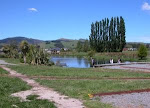Welcoming Refugees through Community Sponsorship.
At our June meeting we were joined by Nick Regnault from South West Baptist Church who spoke to us about welcoming refugees and their families through the Community Sponsorship Programme.
Nick has been involved with South West Baptist Church and the pilot scheme welcoming refugees to New Zealand. He explained that New Zealand has an existing refugee programme run by the government in partnership with organisations such as the Red Cross and using volunteers. This Quota programme is government funded and has 1500 places per year. Worldwide, the number of refugees has increase whilst the number of government funded places has decreased
On top of this, are Community Sponsored places. Such a programme has been running successfully in Canada for 40 years. Under Community Sponsorship, communities may come together to sponsor a family and help them to settle into an area. The aim is to welcome a family to the community and encourage them to settle there by providing practical and social support.
New Zealand ran a pilot programme under the community sponsorship scheme which involved 4 groups across NZ and 25 refugees. South West Baptist was part of a campaign to make the programme bigger and permanent. As a result the government have agreed to expand the pilot to more refugees but needs communities to get behind it to make it a success. So far 50 groups have depressed interest in the programme.
“Community Sponsorship complements the quota programme but it is communities that offer the help.” Nick showed a video from the www.kiwiswelcomerefugees.com website which demonstrated the experiences of both refugees and communities involved in the programme.
From a community perspective getting involved means providing practical support at a grassroots level. Things like.....Making the family feel welcome
Helping to find a house and making sure it is furnished/equipped with everything a family will need.
Helping families to learn English,
Help with getting their driver's licence
Friendships
Spending time together
Introducing them to others in the community
Helping them find groups and activities to take part in
Helping the children feel welcome at school
SWBC welcomed 3 Middle Eastern families, all with children. All had a fundamental grasp of English which is different to the Quota system. The sponsorship programme is more geared to families who have a high chance of integration.
In order to welcome the families, SWBC set up 3 groups of 7 / 8 volunteers and organised to think about how they could use existing networks, available time etc to create a sense of belonging. They then mapped where the volunteers lived and found houses for the refugee families in that area so that there would be a crossover in the places visited and facilities used. Frequenting the same schools, shops etc created accidental as well as intentional interactions. One example Nick gave was the children being at the same School. A simple “Hi” in the playground or at the gate made the children of the family feel like they belonged.
The networks of the volunteers and community around them enabled them to leverage opportunities for work/employment etc and helped bridge cultural divides/misunderstandings (such as “Bring a plate”). Volunteers invested time that may have been setting aside a time for a coffee or more.
The families sponsored by SWBC felt safe. Even after the terror attack which affected many of them very badly, these families don’t blame NZ and are still grateful they came to NZ. The programme creates friendships and connections that help people when they go through hard situations.
Going forwards, the government has agreed to fund an additional 150 families over 3 years NZ wide. This is contingent on Kiwis stepping up. Nick and his organisation are inviting communities to form a group and welcome a family. The first families arrive in NZ in July 2022. This time groups are not on their own, the government is investing in training and will match new groups with those who have done it before to provide support. In addition, in this second round, families get a choice whether they want to engage in the programme or not and there will be an attempt to match families with sponsorship groups and locations
“The only thing that can make a difference to a society is a group of committed citizens” (Margaret Mead)
Questions:
How does a group go about finding a house?
Families don't initially qualify for housing NZ so look at private market, use networks to find available property
What challenges are posed by refugees coming from detention centres?
At this stage this is unknown but presumably will be similar to families coming from a refugee camps. Those families are more likely to have more complex issues and be assigned to the government Quota system.
How can we help change public perception of refugees?
Be a bridge ot help. We start by being the change, modelling it, talking about it. Our action creates the change.
What are refugee expectations of us when they arrive?
The first pilot operated in a vacuum of knowledge. This created some difficulties, eg, refugees not being able to transfer qualifications or skills to the NZ labour market. The learning that came from this will be applied to the new pilot. Eg asking “here is an opportunity, would you like to take it” and an understanding that ties to family and home may be stronger than the desire to relocate and “lose” that sense of belonging. Refugees will be interviewed as part of the process to ensure that expectations are realistic and all parties understand the process and what they are going to.




No comments:
Post a Comment